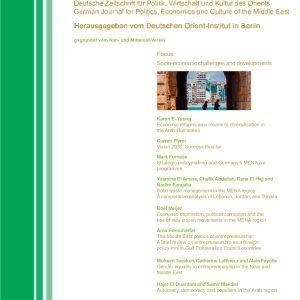Description
In contrast with populism’s recent manifestations in the west, where concerns of its posing a threat to established democracies have been raised, in the Arab region populist movements have often played a positive role in promoting transition towards democratic governance, the Tunisian experience being a notable illustration. A main explanation of this difference lies in the contrasting political contexts in the west and the Arab world: entrenched democracies vs with one or two exceptions varying forms of autocracies.
Hajer El Ouardani is Assistant Professor of Economics and Director of the Economic and Quantitative Methods Department, the Higher School of Economic and Commercial Sciences at the University of Tunis; researcher at the “Prospective, Stratégies et Développement Durable” laboratory (University of Tunis El Manar) and member the Centre d’Etudes en Macroéconomie et Finance Internationale (Nice,France). Her research interests include monetary and fiscal economics and economies of the Middle East region.
Samir Makdisi is Professor Emeritus of Economics and Founding Director of the Institute of Financial Economics, the American University of Beirut; member of the Board of Trustees, Economic Research Forum for the Arab Countries, Iran and Turkey (Cairo); and Member of the Board of Directors of the Forum for Euro-Med. Economic Research Institutes (Marseilles).His research interests include monetary, international and development economics and the political economy of the Middle East region.




Reviews
There are no reviews yet.